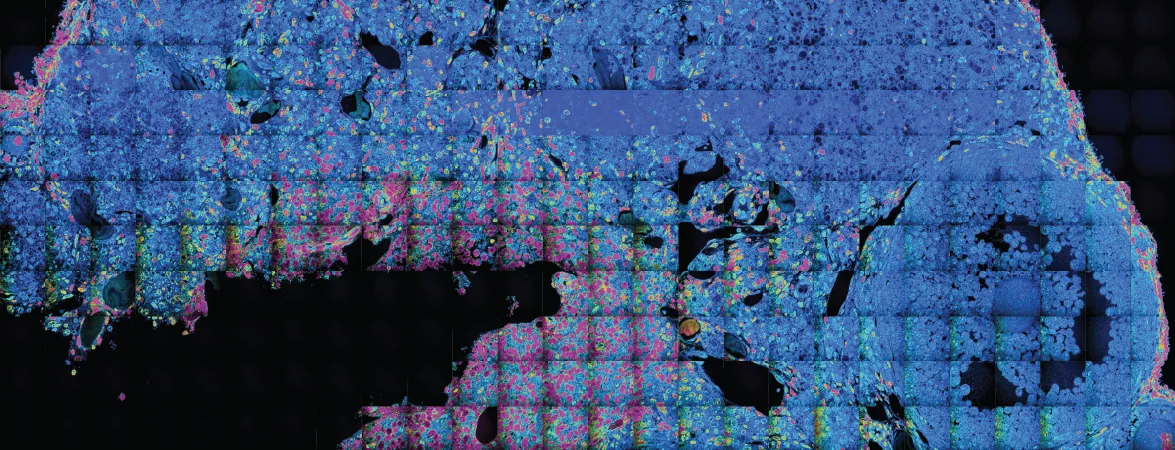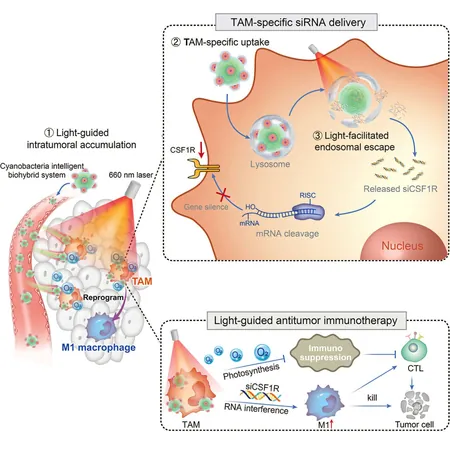
Groundbreaking Study Reveals the Role of Long-Lived Proteins in Female Reproductive Aging!
2024-11-27
Author: Wei Ling
In a stunning revelation, scientists from Northwestern Medicine have uncovered a group of long-lived proteins in the ovaries that could significantly influence the stability and longevity of the female reproductive system. This pivotal research, published in the peer-reviewed journal eLife, sets the stage for future explorations into reproductive aging.
Francesca Duncan, PhD, the Thomas J. Watkins Memorial Professor of Reproductive Science and co-senior author of the study, emphasized the importance of this discovery, stating, “We’ve created a valuable resource. Our catalog of long-lived proteins will aid researchers in delving deeper into how these proteins affect reproductive aging.”
As women age, their reproductive systems are among the first to show signs of decline, with fertility rates decreasing sharply from the mid-thirties and reaching full cessation at menopause. This reproductive aging often correlates with diminished egg quantity and quality, leading to challenges such as infertility, miscarriages, and potential birth defects.
Duncan elaborates, “The mammalian ovary contains a fixed pool of long-lived oocytes, or egg cells, which need to remain functional for decades. As such, these cells are highly susceptible to damage over time.” Understanding the dynamics of these proteins within the ovaries could unlock new strategies for addressing age-related reproductive issues.
To further investigate, Duncan collaborated with Jeffrey Savas, PhD, an associate professor in the Ken and Ruth Davee Department of Neurology. They studied the implications of protein loss and degradation in the ovaries and in immature egg cells. Their findings raise crucial questions about the longevity of proteins in cells: “If proteins persist too long without renewal, this could lead to detrimental effects in long-lived cells,” Duncan noted.
Utilizing a cutting-edge protein identification technique that combines metabolic stable isotope labeling with mass spectrometry, the researchers examined ovarian and oocyte proteins in mice at critical intervals corresponding to reproductive aging. They found that while long-lived proteins persisted in the oocytes at six months, by ten months, most had degraded, highlighting a striking time-dependent turnover.
Among the discoveries were several key protein subtypes, notably histone proteins which play essential roles in gene regulation, and organ-specific proteins like ZP3, integral for sperm-egg binding during fertilization. Remarkably, a significant proportion of the long-lived proteins were mitochondrial proteins, hinting at their crucial role in maintaining egg quality, given that mitochondria are the powerhouse of the cell.
"This finding suggests that the structural integrity of the egg may have been established early on and is further enhanced with newly synthesized proteins as the egg matures. This could revolutionize our understanding of egg biology and how these long-lived cells manage their longevity,” Duncan explained.
Looking ahead, the research team plans to investigate whether these long-lived mitochondrial proteins are ultimately beneficial or harmful to oocytes over time and what implications this has for egg quality and viability.
Duncan is enthusiastic about the interdisciplinary collaboration that made this study possible, remarking, "This project illustrates how merging diverse fields can lead to groundbreaking discoveries in biology."
The study was co-authored by Ewa Bomba-Warczak, PhD, and Karen Velez, MS, and received support from various prestigious grants, including those from the National Institutes of Health.
As this research continues to unfold, it could pave the way for new interventions to enhance female fertility and improve reproductive health as women age. Stay tuned for more updates on these groundbreaking findings!




 Brasil (PT)
Brasil (PT)
 Canada (EN)
Canada (EN)
 Chile (ES)
Chile (ES)
 España (ES)
España (ES)
 France (FR)
France (FR)
 Hong Kong (EN)
Hong Kong (EN)
 Italia (IT)
Italia (IT)
 日本 (JA)
日本 (JA)
 Magyarország (HU)
Magyarország (HU)
 Norge (NO)
Norge (NO)
 Polska (PL)
Polska (PL)
 Schweiz (DE)
Schweiz (DE)
 Singapore (EN)
Singapore (EN)
 Sverige (SV)
Sverige (SV)
 Suomi (FI)
Suomi (FI)
 Türkiye (TR)
Türkiye (TR)